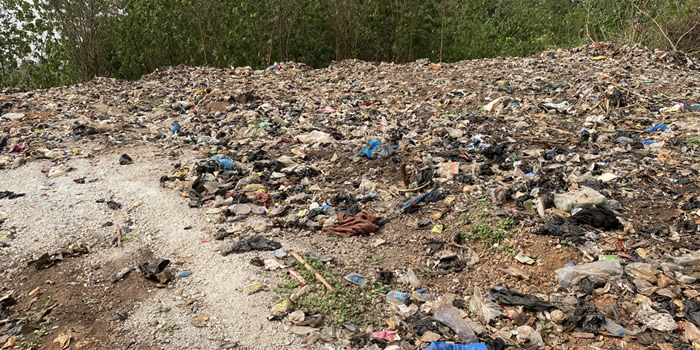

ENVIRONMENT
Extend water and sanitation project to us-residents of Dida
Residents of Dida, a farming community in the Atwima-Kwanwoma District, have appealed to the government to extend the Greater Kumasi Metropolitan Area Water and Sanitation Project (GKMA-SWP) to the community.

Date Created : 3/3/2023 12:00:00 AM : Story Author : Florence Afriyie Mensah/Ghanadistricts.com
This is to help curb the severe sanitation problem facing the people in the community.
Some of the residents expressed worry about the current state of the only public pit latrine in the community.
The toilet had been full for some years, and the wood serving as support to the pit latrine appears weak, while the stench and heat emanating from the end is enough to deter community members from using the structure.
The streets of the community showed calmness, but the residents shared worrying experiences of sanitation challenges, especially access to toilet facilities in the community.
Madam Akua Pokuaa, a 40-year-old drinking bar operator, said her most worry had been the fact that everyone without a toilet in the home visited the same old pit latrine.
“I am really worried, all of us, men, women and children defecate on this wooden structure. It does not give us (women) privacy at all. You will be here, and you see that a man wants to come in here too. Most of the households, I know, just do it in a polythene bag and throw it away, or we go to the bush and do it freely,” she said.
She said there had been a couple of times she had contracted infections from the use of the pit latrine.
Madam Pokuaa pleaded with the government to consider the community and provide toilets that could improve the sanitation condit
A 63-year-old Maame Akua Bema told the GNA that her age did not favour the use of such a toilet facility.
“Mostly I walk for about 10 minutes before I can use this toilet.
She said the facility was not good for the aged and children.
“Our grandchildren of school going age must hang on to this risky thing. Don’t you think a child can fall in this one day,” she quizzed.
Maame Bema indicated that, to avoid disgrace sometimes, she had to defecate in polythene bags and throw it away in the refuse dumps.
The school in the community also had no place of convenience and school children had to defecate in bushes near the school.
Papa Kwadwo, a 12-year-old basic six pupil said he had to go to the bush because there was no place for him to go.
Mr. Ernest Boakye, the District Environmental Officer, collaborated on the concerns of the people and said about 25 per cent of the 234,836 people in 64 communities in the districts, practice open defecation.
He pointed out that lack of toilet facilities was a serious challenge in the settlements of the one of the peri-urban districts in the Ashanti region.
Mr. Boakye said the government needed to extend the Greater Kumasi Metropolitan Area Water and Sanitation Project (GKMA-SWP), a project meant to increase access to improved sanitation and water supply, to such areas to improve sanitary conditions.
He said the communities would embrace the World Bank- Government of Ghana subsided project, stressing that peri-urban communities needed such interventions the most.
“The peri-urban districts need the facilities the most, because there are a lot of people in the communities that cannot build toilets by themselves but with the subsided projects, community members can own toilets in the homes”.
According to the officer, pit latrine had a lot of health implications, including typhoid infections, offensive odour to the community and disease infections to ladies, especially.
They also served as a harbouring place for reptiles which could be very serious.
Mr. Boakye said the extension of the project to the district would help encourage residents to build toilet facilities in their homes and help the district assembly to strengthen its sanitation bylaws in the communities.
 facebook
facebook
 twitter
twitter
 Youtube
Youtube
 +233 593 831 280
+233 593 831 280 0800 430 430
0800 430 430 GPS: GE-231-4383
GPS: GE-231-4383 info@ghanadistricts.com
info@ghanadistricts.com Box GP1044, Accra, Ghana
Box GP1044, Accra, Ghana